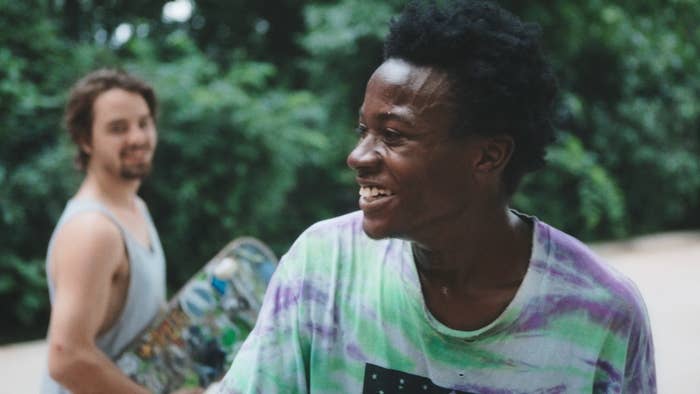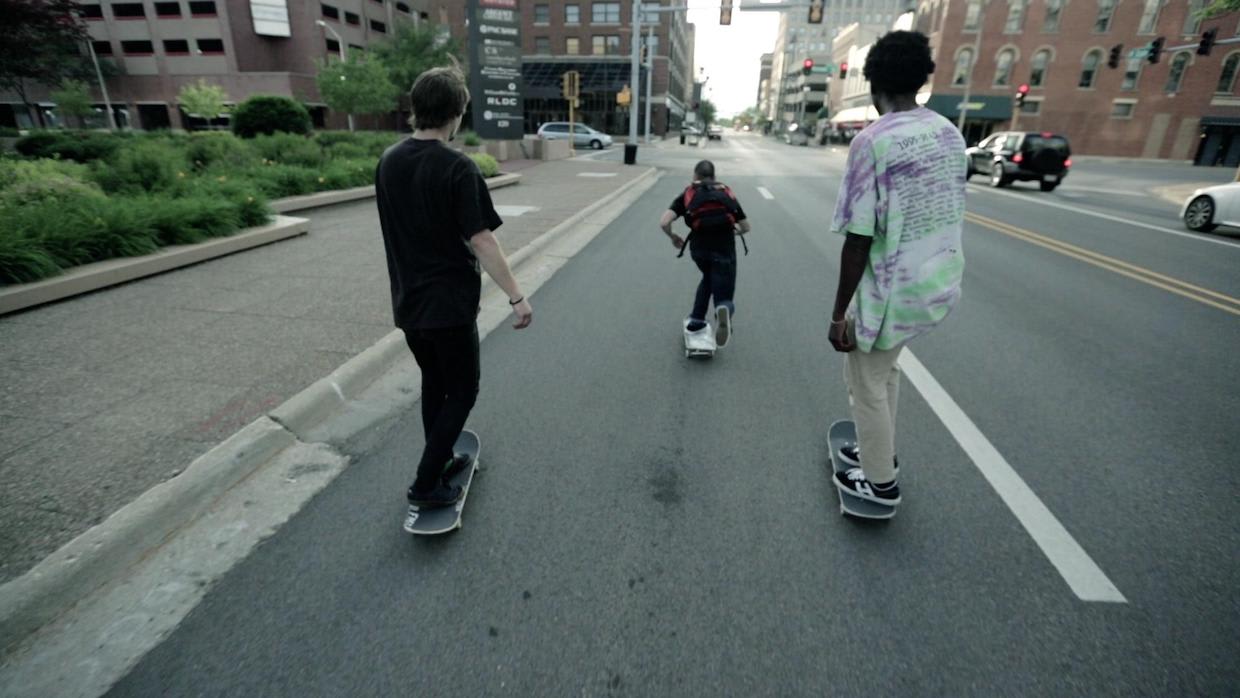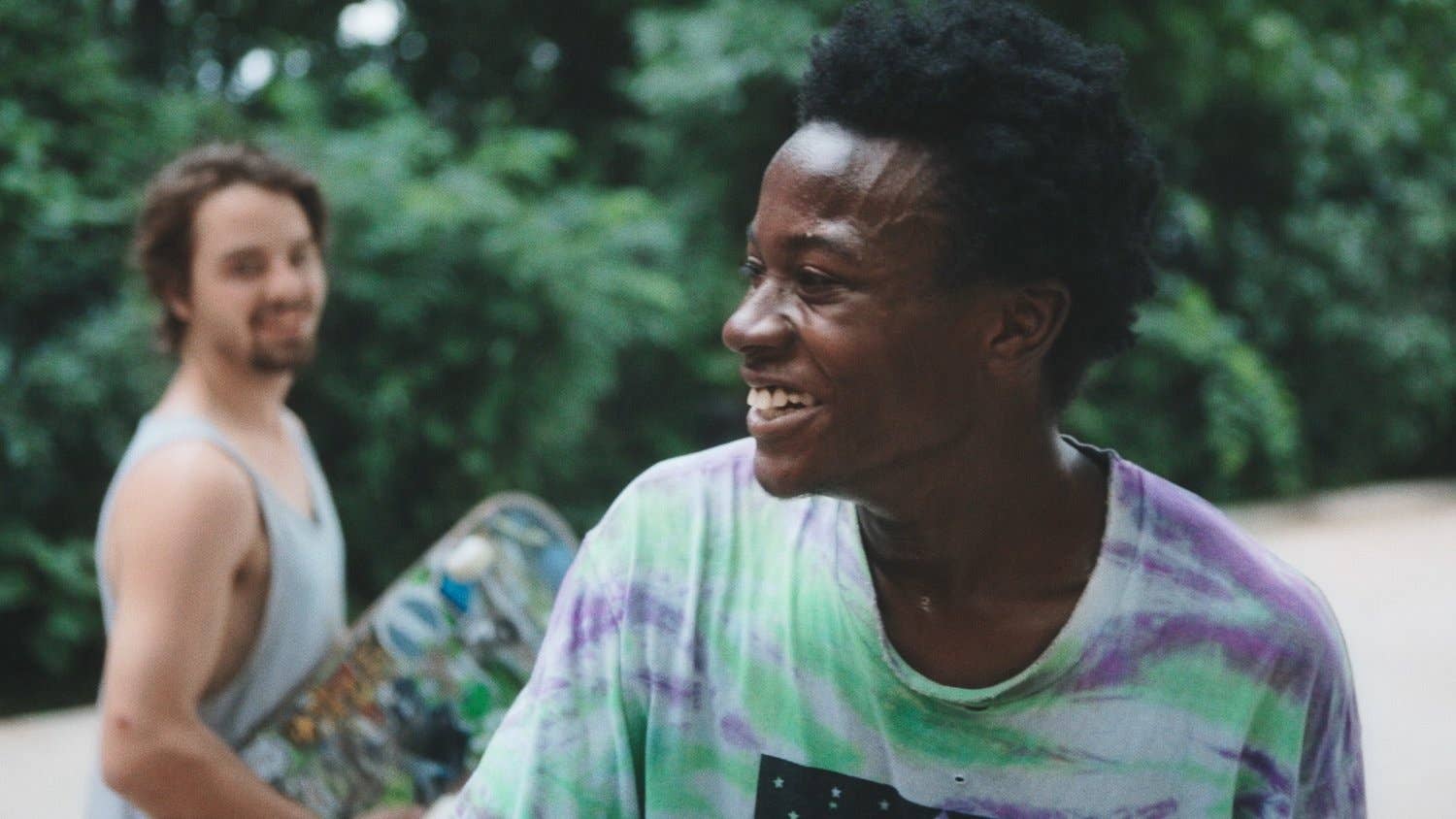
Bing Liu’s Minding the Gap is a masterful documentary that uses skateboarding as a vehicle to deliver a powerful examination of intergenerational violence, inherited trauma, toxic masculinity, racial identity, and late capitalism in America’s Rust Belt. Liu, a 30-year-old, self-taught filmmaker meticulously cobbled the film together from 12 years’ worth of footage he shot of himself and his friends in their hometown of Rockford, IL. The result, his first feature ever, has earned a nomination for Best Documentary Feature at the 91st Academy Awards this weekend.
As deserving as Liu and his film are, the nomination comes as somewhat of a surprise, for reasons that point to the mechanics of the industry. In terms of marketing, Minding the Gap received hardly any promotional push from its distributors, Hulu and Magnolia Pictures. I never saw a trailer for Minding the Gap in a theater. I didn’t even see a single targeted ad on my (full disclosure: very skateboarding-centric) Instagram feed, while two other prominent skateboarding films released around the same time, Skate Kitchen and Mid90s, employed very active social media campaigns. The film had an extremely limited, blink-and-you’ll-miss-it theatrical release for one week only, in a total of five theaters nationwide, after which it could only be seen on Hulu. By contrast, Netflix’s presentation of Alfonso Cuarón’s Roma screened in 100 theaters domestically (of an estimated 600 worldwide), for upwards of four months and saw a behemoth $25 million Oscar campaign in tandem with its availability on the streaming service.
Even compared to this year’s other Best Documentary nominees, Minding the Gap made the smallest dent as far as metrics show. RBG, Free Solo, and Three Identical Strangers, for instance, reached hundreds of theaters and grossed well over $10 million each. In its singular week at the box office, Minding the Gap grossed just under $12,000.
Numerical optics aside, perhaps the real reason Minding the Gap’s nomination wasn’t assumed to happen boils down to the fact that we simply don’t trust the Academy to get it right. Film critics and independent institutions are reliable to give movies like Minding the Gap their shine, but most of us know better than to expect the Oscars to demonstrate progressive artistic values. This year’s inclusion of Minding the Gap, alongside other working-class narratives like Roma and Shoplifters, invites hope that there is potential to include more stories that are representative of marginalized communities. But then again, Vice has eight nominations.
Although skepticism toward the Academy remains justified, it is a genuinely exciting and validating moment for Bing Liu and his work to be in the Oscars conversation. On a technical level alone, what Minding the Gap achieves is awe-inspiring. Another filmmaker you may recall having spent 12 years on shooting a coming-of-age movie was Richard Linklater, whose ubiquitous 2014 film Boyhood garnered six Oscar nominations—including Best Director—and fetched the highest critical acclaim of his long-established career. Minding the Gap is Liu’s first feature ever. In addition to directing, Liu was his own cinematographer (a task that entailed learning to skate with a Glidecam rig), did much of his own editing (which is so precisely poignant it deserved a nod in the Best Editing category, if we’re being real), and most ambitiously of all, he drew on his own family, friends, and life to tell an incredibly sensitive story.
All of Liu’s impressive technical accomplishment is in service of the complex emotional work done through the film. Minding the Gap is the work of a deeply thoughtful, emotionally intelligent person who values ethical integrity. It’s clear in how carefully Liu engages his subjects. At one point in the film, his friend Kiere says that talking to Bing on camera about their respective traumas feels “like free therapy.” Recently, Liu told WNYC that he attended a 40-hour course on domestic violence prior to approaching Nina, a young woman subject of the film, about how to confront her abuser/boyfriend Zack.
Minding the Gap commits to its themes in a way that comparable films don’t show the same willingness or capacity to do. Though it is a fundamentally different film, Mid90s too alludes to male anger, domestic violence, and the use of skateboarding to sublimate deeper pains— but only grazes the surface of how young men are affected. Minding the Gap confronts these concepts head-on. It unpacks the ramifications of violence as it relates to men, women, and children across generations and across families—connecting the dots from Liu’s own mother and stepfather, to Nina and Zack and their infant son. Liu also incorporates cultural context: by noting Rockford’s dismal statistics on unemployment and rampant domestic violence, he reminds us there is a systemic correlation between economic duress and domestic trauma.

Liu’s sensitivity is also fruitful in his handling of the film’s tone. Where a less tactful storyteller might stumble and land on a note that registers as patronizing or else too bleak, Liu lands with purpose and grace. The emotional aura of Minding the Gap is gripping, challenging in its vulnerability; it is sober without being judgmental, hopeful without being infantilizing. Above all else, Liu shows his greatest strength is compassion. His film validates the pain of those who have suffered abuse and alienation, it holds accountable those who have caused it, and ultimately, it asks for resolution, growth, redemption—for all. Minding the Gap bears the promise of possibility.
Bing Liu is the kind of person we need to see more of, not just in Hollywood, but in the world at large: a smart, kind person who fosters empathy in others by exemplifying it through his work. The more agency and moral support that is given to people like Liu to share their stories, the better off we all are. In this way, an Academy Award nomination for Bing Liu feels like a victory already, which would only be compounded if he wins on Sunday. As antiquated as awards shows often are, it is meaningful nonetheless when mainstream cultural institutions such as the Oscars reaffirm the significance of stories by/about people who defy dominant culture and in doing so facilitate more opportunities for those stories to be told. A win for Minding the Gap is a win for so many: millennials, survivors, children of immigrants, people from working class families, people grappling with trauma, and people who understand art can be a powerful tool to change culture and want to use it that power to heal. It’s a win for all of us.


